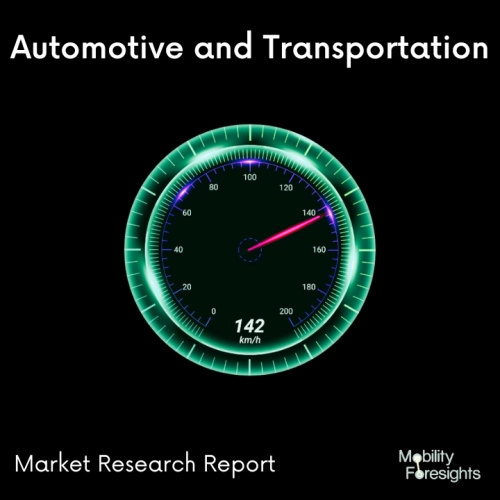
- Get in Touch with Us

Last Updated: Apr 25, 2025 | Study Period: 2024-2030
EV battery pack to car connectors are the essential components that facilitate the transfer of electrical energy from the battery pack to the vehicle's electrical system, enabling the operation of electric vehicles (EVs). These connectors typically consist of several components designed to ensure safe and efficient energy transfer.
One crucial connector type is the Combined Charging System (CCS), which integrates AC and DC charging capabilities into a single connector. It is commonly used in Europe and increasingly adopted in other regions. The CCS connector enables faster charging through direct current (DC), which is essential for high-speed charging stations. Many modern EVs are equipped with CCS ports to support rapid charging.
These connectors play a vital role in the adoption and expansion of electric vehicles by providing users with convenient and reliable charging options. Compatibility between connectors ensures that EV drivers can access charging infrastructure regardless of their vehicle make or model, contributing to the growth of sustainable transportation.

The Global EV Battery Pack To Car Connectors Market for $XX Billion in 2023 and is anticipated to reach $XX Billion by 2030, registering a CAGR of XX% from 2024 to 2030.
Recent technological advancements in battery pack-to-car connectors market for EVs have primarily focused on improving charging efficiency, reducing charging times, and enhancing user experience.
One notable advancement is the development of bidirectional charging capabilities, also known as vehicle-to-grid (V2G) or vehicle-to-home (V2H) technology. This innovation allows EVs to not only receive power from the grid but also to discharge stored energy back to the grid or to power residential homes during peak demand periods or in emergency situations.
Additionally, advancements in connector design and materials have led to more robust and durable connectors capable of withstanding frequent use and varying environmental conditions. For instance, some connectors now feature enhanced sealing mechanisms to prevent water and dust ingress, improving reliability and safety.
Moreover, the integration of smart technology into connectors and charging infrastructure enables features such as remote monitoring, dynamic charging management, and payment processing. EV drivers can conveniently monitor charging sessions, receive notifications, and manage charging schedules through smartphone apps or vehicle interfaces.
Furthermore, rapid advances in wireless charging technology hold promise for eliminating the need for physical connectors altogether. Wireless charging systems utilize electromagnetic induction or resonance to transfer power from a charging pad embedded in the ground to a receiver installed on the vehicle, simplifying the charging process and reducing wear and tear on connectors.
Overall, these recent technological advancements in battery pack to car connectors for EVs signify significant progress towards making electric vehicles more accessible, convenient, and sustainable for consumers and furthering the transition to a greener transportation ecosystem.
| Sl no | Topic |
| 1 | Market Segmentation |
| 2 | Scope of the report |
| 3 | Abbreviations |
| 4 | Research Methodology |
| 5 | Executive Summary |
| 6 | Introduction |
| 7 | Insights from Industry stakeholders |
| 8 | Cost breakdown of Product by sub-components and average profit margin |
| 9 | Disruptive innovation in the Industry |
| 10 | Technology trends in the Industry |
| 11 | Consumer trends in the industry |
| 12 | Recent Production Milestones |
| 13 | Component Manufacturing in US, EU and China |
| 14 | COVID-19 impact on overall market |
| 15 | COVID-19 impact on Production of components |
| 16 | COVID-19 impact on Point of sale |
| 17 | Market Segmentation, Dynamics and Forecast by Geography, 2024-2030 |
| 18 | Market Segmentation, Dynamics and Forecast by Product Type, 2024-2030 |
| 19 | Market Segmentation, Dynamics and Forecast by Application, 2024-2030 |
| 20 | Market Segmentation, Dynamics and Forecast by End use, 2024-2030 |
| 21 | Product installation rate by OEM, 2023 |
| 22 | Incline/Decline in Average B-2-B selling price in past 5 years |
| 23 | Competition from substitute products |
| 24 | Gross margin and average profitability of suppliers |
| 25 | New product development in past 12 months |
| 26 | M&A in past 12 months |
| 27 | Growth strategy of leading players |
| 28 | Market share of vendors, 2023 |
| 29 | Company Profiles |
| 30 | Unmet needs and opportunity for new suppliers |
| 31 | Conclusion |
| 32 | Appendix |